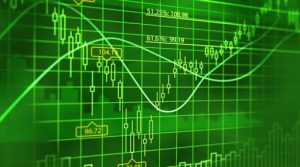 The development of the foreign exchange market in Nigeria was driven by structural changes, institutional changes, and changing international trade patterns. Prior to the liberalization of the market, foreign exchange in Nigeria was earned primarily by the private sector and held by commercial banks acting as agents of local exporters. The foreign exchange receipts of Nigeria were largely derived from agricultural exports. Moreover, the Nigerian pound was pegged to the British pound sterling at par, which delaying the development of an active foreign exchange market.
The development of the foreign exchange market in Nigeria was driven by structural changes, institutional changes, and changing international trade patterns. Prior to the liberalization of the market, foreign exchange in Nigeria was earned primarily by the private sector and held by commercial banks acting as agents of local exporters. The foreign exchange receipts of Nigeria were largely derived from agricultural exports. Moreover, the Nigerian pound was pegged to the British pound sterling at par, which delaying the development of an active foreign exchange market.
The growth of the middle class in Africa has been reflected in the rising consumer spending in Nigeria. The foreign exchange market has been attracting upwardly mobile Nigerians seeking stable investments. In addition, the global reach of the forex market makes it a highly attractive investment choice. It is possible to make significant profits through the forex market, and there are several ways to do so. For example, you can short the market by borrowing currency that you intend to sell. Then, you can buy it back at a cheaper price.
In Nigeria, the government recently introduced a new digital currency called eNaira, which is a virtual equivalent of the physical Naira. While this digital currency will not replace the physical Naira, it will still be used for cross-border transactions. However, it is still unknown how the eNaira will affect the economy of the country. In the meantime, you can continue to use MAJORITY to send money from abroad to Nigeria.
